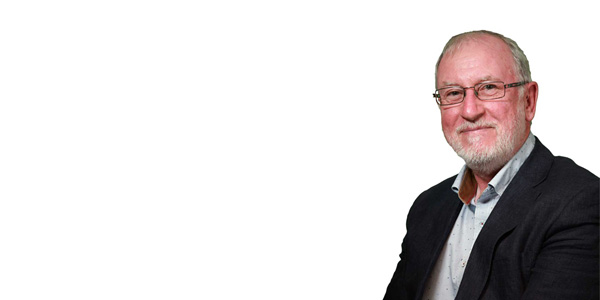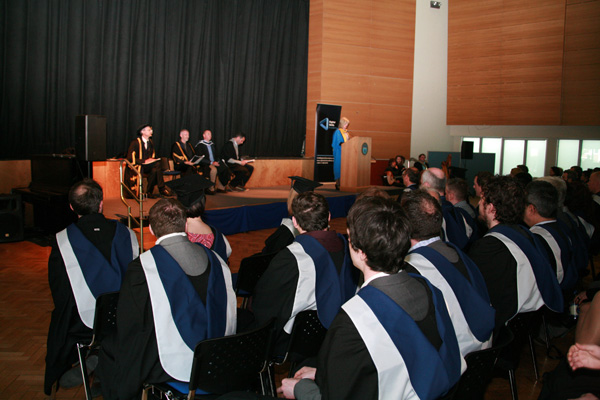I am the Head of Admissions. This involves oversight of the admissions process and the procedures that are in place and to ensure that applicants are notified in a timely and informative manner throughout the application process. I liaise with Dublin Institute of Technology (DIT) with whom we have a regular admissions review board meeting. This is to ensure that all applicants who are admitted to our programmes meet the minimum entry requirements. I look at all admissions to make an initial assessment, to consider where they fit in relation to the entry requirements, for the honours and ordinary degrees, and any RPL (Recognition of Prior Learning) grounds are properly considered.
My background is in education. I hold a Masters of Education and worked as a teacher for many years and worked with the Digital Hub Development Agency as the Learning Project Coordinator. I currently also work as an instructional designer of digital assets for an educational publisher. I lecture for Hibernia College and have tutored students on degree and master’s degree programmes in Education.

The graduate degree programme was offered for the first time internationally in 2015. However, the Digital Skills degree programmes have been offered in Ireland for a number of years prior to that, but the international programmes are now offered globally. It is a one-year programme of study, fully accredited, with the option of an ordinary or honours BSc with specialisms in Digital Technology, Digital Business and Digital Design. It is a one-year top-up degree, the equivalent of the final year of an undergraduate degree.
The ordinary degree is for those with a diploma or higher education qualification and/or relevant career experience who wish to move into the digital sector, possibly moving into middle management or an entry level developer position. This type of candidate will probably apply for the ordinary level degree.

For the honours degree, candidates would already have a degree or higher diploma – or equivalent - and extensive career experience, though not at all necessarily in the digital sector. They would generally be looking to move into senior positions or to start up their own digital company.
While both programmes have a similar workload, the honours participants are expected to have a skill set to cope with more complex project-based environments. They need to be capable of quickly adapting and working at that level. This type of candidate will benefit from the honours programme. The honours degree started in 2015, and the ordinary degree commenced in April 2016. This year will see the first cohort of international participants graduate.
Currently, there are similar numbers applying for each of the International degree programmes, and both are very much in demand.
It is the equivalent to a final year of a university study qualification. It is aimed at people who already have a degree (or the equivalent level of career experience to gain entry under RPL (Recognition of Prior Learning) and who are looking to gain added enhanced digital skills to their capabilities.
It can be achieved in a year because participants will have the relevant work experience, or qualifications equivalent to the first two or three years of a traditional degree. All applicants taking the Digital Skills ordinary degree programme will already have a Level 6 or 7 major award before they commence the programme (or the RPL equivalent - see below).
Similarly, for the honours course, participants need a level 7 or 8 major award. This will demonstrate that they have the study skills required. This is looked at along with relevant work experience. If someone doesn’t meet the minimum standard but has other relevant work experience this can indicate they have the capacity to undertake the degree. Though for some candidates we have had to recommend that they acquire the relevant experience or qualifications before we are able to offer them a place on the honours degree.

We have an evaluation system – agreed with our accrediting degree-awarding body, DIT - to assess if applicants will meet the necessary levels of RPL required. Some applicants may need to do the ordinary degree first, so it may happen that they have to do two years instead of one to attain the honours degree. For some applicants, it may be necessary to take an aptitude test. This is not to test them on what they know, rather it is a method to ensure participants have the capacity to make an informed choice about which is the right programme stream for them. It’s important to remember that we look at each case individually.
The best advice we can give is to make sure that applicants provide as many details as possible of any relevant prior experience and educational qualifications when applying that may help to support their application.
Our programmes in Ireland have had very high completion rates, and so far the International programmes are showing a similar pattern, and we are getting good, positive feedback. The lecturers are saying that people are finding it very useful and valuable, and have engaging and authentic learning experiences.
In South Africa, many people participating have five to ten years plus of work experience with some industry certifications. This a great positive example of the value of RPL. Many are taking part through a corporate program. In Ireland too, we have many participants moving from other sectors, such as hospitality, dentistry, and those wanting to set up their own business. This course provides a good stepping stone, we also have people who work in sales, project management, financial services, and wide range of backgrounds. Most applicants have a clear career vision. They are willing to undertake this degree at their own expense, with a plan, and career ideas they want to pursue. This degree allows them to do that.
So far it has been Ireland, the UK, South Africa, Nigeria, Mexico, the UAE and the Middle East, and Germany. Courses are currently delivered in English, so proficiency in English is essential.
Dublin Institute of Technology is a degree-awarding body and a higher education institute, established under Irish legislation, and a member of European University Association. It is publically funded, and autonomous, and makes awards for Bachelors, Honours, Masters and PhDs. They oversee all of our programmes, and we work under their quality assurance systems.

DIT combines the academic excellence of a traditional university with professional, career-oriented learning, preparing graduates for productive leadership roles. The core values reflected in its mission emphasize student-centred learning, useful knowledge, rigorous processes of discovery and critical enquiry, and support for entrepreneurship and diversity.
BSc Degree in Digital Technology and Design